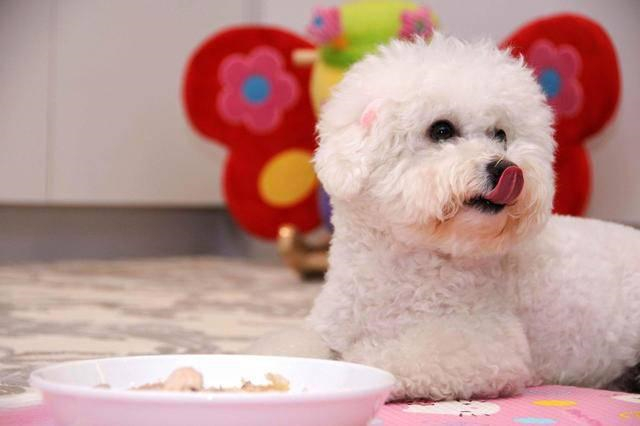The Bichon Frise is a small, lively breed with specific dietary needs to maintain its fluffy coat, energy levels, and overall health. A well-structured diet plan ensures your Bichon thrives at every life stage. Below, we break down essential feeding guidelines, recommended foods, and tips to avoid common pitfalls.
 Article source:https://www.petwoah.com/pet Site-https://www.petwoah.com/693.html
Article source:https://www.petwoah.com/pet Site-https://www.petwoah.com/693.html
Understanding Your Bichon Frise’s Nutritional Needs
Bichons are prone to allergies, dental issues, and obesity, making a balanced diet critical. Key nutrients include:Article source:https://www.petwoah.com/Pet Site-https://www.petwoah.com/693.html
- High-quality protein (chicken, turkey, salmon) for muscle health.
- Healthy fats (fish oil, flaxseed) for skin and coat.
- Complex carbohydrates (sweet potatoes, brown rice) for energy.
- Vitamins & minerals (calcium, phosphorus) for bone strength.
Diet Plan by Life Stage
1. Puppy Diet (2–12 Months)
Bichon puppies need nutrient-dense meals to support growth:Article source:https://www.petwoah.com/Pet Site-https://www.petwoah.com/693.html
- Feeding Frequency: 3–4 small meals daily.
- Key Nutrients: 22–25% protein, 8–10% fat.
- Recommended Foods: Puppy-formulated kibble, boiled chicken, pumpkin puree.
- Avoid: Raw meat (risk of bacteria), large kibble (choking hazard).
2. Adult Diet (1–7 Years)
Maintain weight and energy with portion control:Article source:https://www.petwoah.com/Pet Site-https://www.petwoah.com/693.html
- Feeding Frequency: 2 meals daily.
- Key Nutrients: 18–20% protein, 5–8% fat.
- Recommended Foods: Lean meats, green beans, blueberries.
- Avoid: High-sodium snacks, processed treats.
3. Senior Diet (8+ Years)
Support joint health and digestion:Article source:https://www.petwoah.com/Pet Site-https://www.petwoah.com/693.html
- Feeding Frequency: 2–3 light meals daily.
- Key Nutrients: Glucosamine, omega-3s, fiber.
- Recommended Foods: Senior-specific kibble, steamed carrots, plain yogurt.
- Avoid: Hard treats (dental risks), fatty cuts.
Foods to Avoid for Bichon Frises
Bichons are sensitive to certain ingredients. Never feed:Article source:https://www.petwoah.com/Pet Site-https://www.petwoah.com/693.html
- Toxic Foods: Chocolate, grapes, onions, xylitol.
- Allergens: Corn, soy, wheat (common triggers).
- High-Fat Items: Bacon, fried foods (risk of pancreatitis).
Feeding Tips for Optimal Health
- 1. Portion Control: Measure meals to prevent obesity (¼–½ cup per meal for adults).
- 2. Hydration: Always provide fresh water.
- 3. Dental Care: Use dental chews or kibble to reduce plaque.
- 4. Transition Gradually: Mix new food with old over 7–10 days.
FAQs About Bichon Frise Diets
- Q: Can Bichons eat grain-free diets?
- A: Consult your vet—grain-free diets may lack essential nutrients.
- Q: How to handle food allergies?
- A: Switch to hypoallergenic formulas with novel proteins (duck, venison).
- Q: Are homemade diets safe?
- A: Only with vet-approved recipes to avoid nutrient deficiencies.
A tailored Bichon Frise diet plan ensures a happy, healthy companion. Prioritize high-quality ingredients, avoid harmful foods, and adjust portions based on age and activity level. Always consult your vet for personalized advice.Article source:https://www.petwoah.com/Pet Site-https://www.petwoah.com/693.html Article source:https://www.petwoah.com/Pet Site-https://www.petwoah.com/693.html

